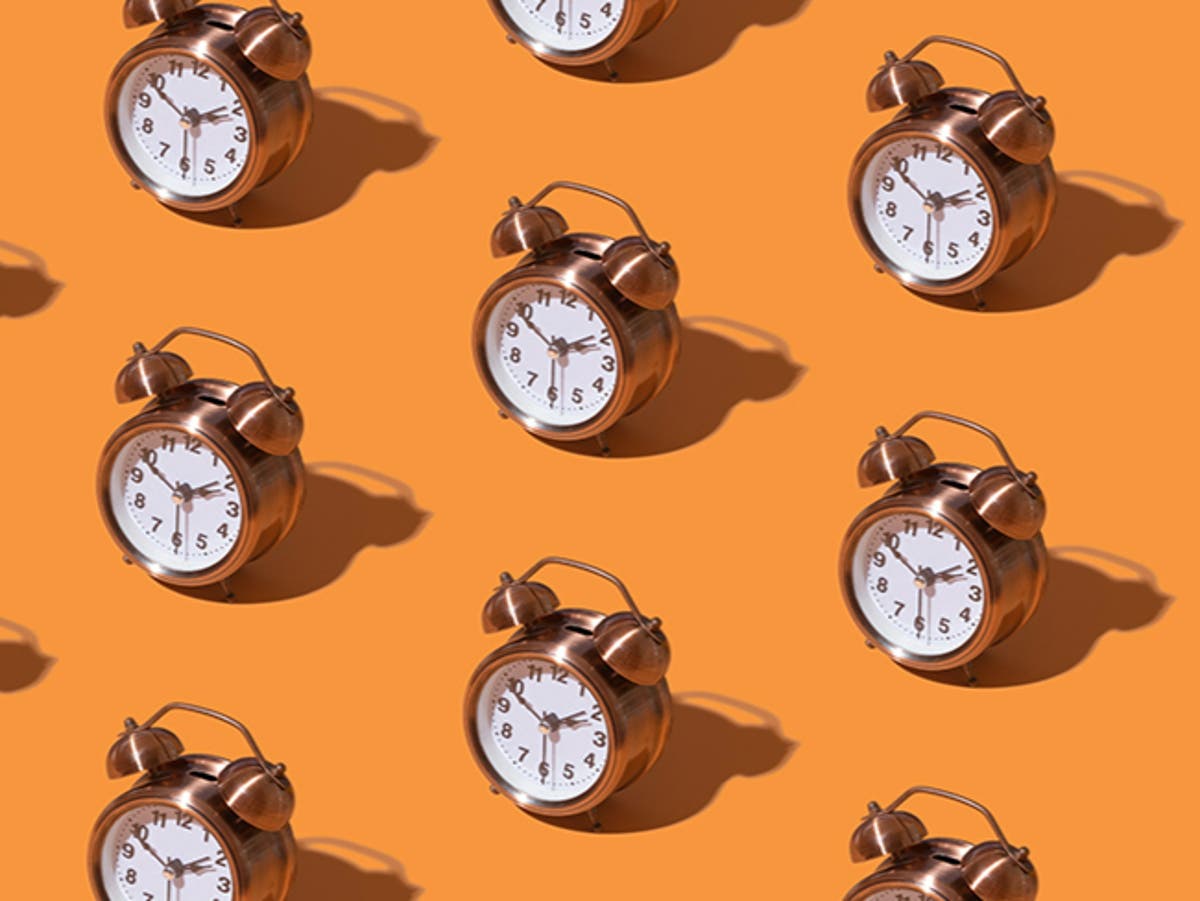AAs I sit here and think that we are about to enter the year of our Lord 2025, I feel a deep tiredness creeping over my aging body. It may be reaching the quarter-century mark, but the very concept of “2025” – Twenty twenty five! – It seems absurd this couldn’t possibly be a real year, happening in real time – that’s what time travel stories are about. Movies that take place in the future of the space age. Dystopian novels that paint a dark picture of the collapse of society in the coming decades. This cannot happen now.
However, the calendar doesn’t lie. It’s about to hit 2025, whether I think it’s temporarily possible or not. The passage of time seems to play annoying tricks – because surely the pandemic was only a few years ago? The London Olympics were five years ago, weren’t they? And the millennium was a decade ago, the peak – I’m sure…
It’s not just me who experiences the feeling of shooting years at an increasing rate as I get older. While Albert Einstein popularized the concept that time is relative—an hour spent with someone you love passes in an instant, a moment spent with your hand on a hot plate passes endlessly—research into It consistently shows that our perception of how fast time passes actually accelerates with age. According to a recent study by Liverpool John Moores University, the vast majority of people in the UK feel that Christmas is approaching faster every year, for example, while that the people of Iraq felt that the month of Ramadan had arrived earlier.
According to the mechanical engineering professor and author: “Physical time is not mental time.” Time and beauty: why time passes and beauty never diesAdrian Bejan says. “The time you understand is not the same as the time someone else understands.”
One side of the equation is the explanation of this physiological phenomenon. Remember as a kid when summer vacations felt like a stretch, an endless wad of chewing gum that lasted for hours on lazy afternoons? There is a real science behind it. “The brain receives fewer images than it was trained to receive when it was young,” Bejan argues. He theorizes that the speed of processing visual information decreases with age. As networks of neurons in the brain increase in size and complexity, electrical signals must travel greater distances, resulting in slower signal processing. The result? As we age, we perceive fewer “frames per second”, and therefore feel that time is passing faster. It’s like a flip – the fewer shots, the faster you flip to the end.
“People are often surprised by how many of the days that seemed to last forever in their youth,” he said. “It’s not that their experiences are much deeper or more meaningful, it’s just that they’re processed in rapid fire.”
Moreover, the less time we have experienced, the greater proportion of our lives a given period of time actually constitutes. For a four-year-old, a year is a much larger percentage of their total lifespan so far than for a 40-year-old – so it’s no wonder it feels longer and more important.

While we can’t do much about these physiological elements, there are other important factors at play. do Have some control Another reason it takes longer when you’re younger, says Bejan, is that the brain is programmed to cling to new experiences—and when we’re young, we’re always experiencing new things. There is a lot to absorb and digest each day for a child who is facing the world anew. After all, in the beginning, everything we do is the first time we do it.
The older we get, the more likely we are to have fewer and fewer new experiences with each passing year. This is partly because, naturally, the more things we experience, the less new there is. is Experiencing, but part of it is due to human nature; As we age, we can become increasingly stuck in old habits, too comfortable with the familiar and reluctant to pursue new things or challenge ourselves to step into the unknown. Even trying a new food can feel like a bridge too far.
If we do the same things week in, week out, we’re not giving our brains anything fresh or meaningful. With a few newly made memories, weeks turn into months, turn into years, with little difference in between. Time, for all intents and purposes, has sped up.
On the contrary, according to Cindy Lustig, professor of psychology at the University of Michigan, when we recall an eventful period, time seems to fly by… and it seems very long.
With a few new memories made, weeks turn into months and turn into years
Routine is the enemy of expanding your time. Changing things up, whether it’s simply walking a new way to the store, indulging in a new hobby, or branching out and listening to a different kind of music, can be the key to making each year last longer than looking back. An increasingly ill-defined. a blur
“A little more slowly, force yourself to do new things to get out of the routine,” Bejan says. “Treat yourself to surprises. Do unusual things. Did you hear a good joke? Tell me! Do you have a new idea? Do something, make something, say something.”
And then there’s that dreaded word: “mindfulness.” If time is all perspective, then making sure we spend some of it living in the moment—and being intentionally present in the present—is fundamental to living the longest we can in the time we have. As Lustig says, “None of us know how much time we have, but it’s interesting that we actually have a lot of control over how we experience that time.”
Constantly focusing on past mistakes or worrying about possible future problems ensures that you miss the most important part of your life so far: right here, right now.












